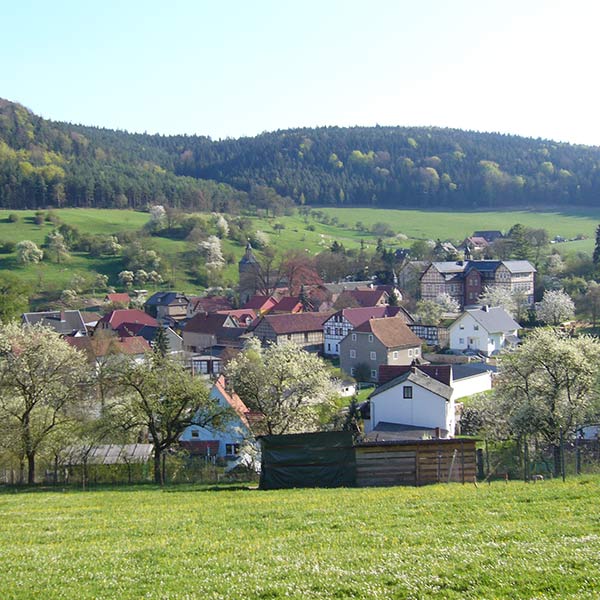Subtotal: $
Checkout-

Seizing Moments of Awe
-

Daring to Sing
-

Setting the Table at Koinonia Farm
-

Discovering Reverence
-

Schooling Me, the Surgeon
-

Insights on Childhood
-

What’s the Point of a Christian Education?
-

Every Child Is a Thought of God
-

Kindergartners Are Human Beings
-

Charity Is No Substitute for Justice
-

Digging Deeper: Issue 3
-

Should Christians Abandon Public Schools?
-

Why I Homeschool
-

Why Dads Matter
-

Jesus’ Surprising Family Values
-

Letter from the Texas-Mexico Border
-

Noah: A Wordless Story
-

Reclaiming a Literary Giant
-

Editors’ Picks Issue 3
-

Does ISIS Prove Nonviolence Wrong?
-

Blood and Ink
-

Dispatch from Ferguson
-

Soldier of the Lamb: What I Learned from Larry
-

Carol of the Seekers
-

Readers Respond: Winter 2015
-

Family and Friends Issue 3

Sending Messages into the Future
Keilhau Today
By Else Arnold
March 2, 2015
Available languages: Español
A recent visitor to the tiny Thuringian village of Keilhau, home to eighty-six inhabitants and the last stop on Germany’s longest cul-de-sac, called it “the end of the world.” But we who work here know that Keilhau is a place where broken worlds are healed, a place which sends new messages out into the future every year. It was here that Friedrich Fröbel, the groundbreaking nineteenth-century educator and inventor of the kindergarten, founded his first school and wrote his magnum opus The Education of Man. His premise: “Education should lead and guide the human being to inward clarity, to peace with nature, and to unity with God.”
In 1817, Fröbel first looked down on Keilhau from a nearby mountain and exclaimed, “What a valley for education!” Weeks later he moved into an abandoned barn with his first five students. Between lessons, they built their first school building and explored the local mountains. Outside the original house is a plaque with Fröbel’s words inscribed: “I want to educate independent thinkers and people who take initiative.”
“Children are the living messages we send to a time we will not see.” –Neil Postman
Nearly two hundred years later, Keilhau is still a haven where children find peace and independence. But while Fröbel took in the sons of the well-to-do, Keilhau now receives disadvantaged children with learning disabilities, many from troubled homes. M, for example, recently arrived from a psychiatric unit. He usually spends recess huddled against a wall, panic in his eyes at the chaos of footballs, hula hoops, and scooters racing around him. But yesterday I found him squatting on the playground, oblivious of the other children. I was struck by the transformation. “Look,” he whispered in response to my greeting. “I have to protect this moth – it has a broken leg.”
How can we help the most vulnerable and hurt children? In his book, Fröbel answers: “Play is the purest, most spiritual activity of man.… It gives joy, freedom, contentment, inner and outer rest, and peace with the world.” I often watch the children playing out their fears, but I also see them find peace through play.
J is a second grader from a fragmented home; “Papa” is any one of about fifteen men who come in and out of his life. Recently, we took the children into the woods for the afternoon, to explore, build huts, and discover insects. While the other children played around him, J sat in a “hut” of old branches, quietly counting and arranging pinecones. The area around him filled with an almost holy peace as he made order of his life.
Fröbel’s maxim, “Education is example and love,” has spread all over the world from this tiny valley. It has shaped the Bruderhof’s education for the last eighty years, since Annemarie Wächter, a Fröbel family descendent, left her childhood home in Keilhau to join the community in 1932. She brought Fröbel’s legacy with her, sharing it with the other members and with her own children, including Johann Christoph Arnold.
And so, from Keilhau and from other schools like it all over the world, messengers are sent out into the future ready to work with their hands, to delight in nature, and to demonstrate that small acts of love can change lives.
 The village of Keilhau, Germany, in Friedrich Fröbel’s “valley of education.” Photograph by Susie Huleatt.
The village of Keilhau, Germany, in Friedrich Fröbel’s “valley of education.” Photograph by Susie Huleatt.
Already a subscriber? Sign in
Try 3 months of unlimited access. Start your FREE TRIAL today. Cancel anytime.




































Robin McGowan
I think that we need to educate all of our children in this manner.